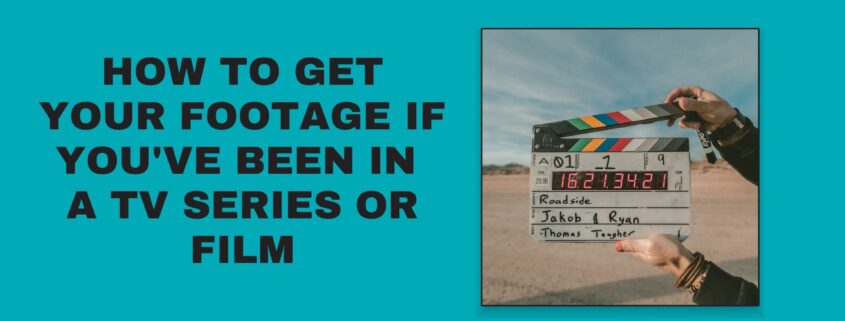Clips and Demos: What do Actors Need?
As a manager here at Bright Artists Management, who not only works with acting pros, who have been in the business for years, but also who works with emerging actors, this question about acting-clips and demo-reels comes up pretty much on a daily basis.
Keep in mind that reps often use different marketing tools on your casting pages to get you auditions. In addition, keep in mind that casting directors who see those marketing tools are not all the same. What they want from actors differs much of the time. An example of that difference is that some casting directors of comedy shows will ask for a comedy reel, while some do not. Same with dramatic shows. Some casting directors don’t have time to look at the entire reel so they ask for a clip of an actor playing a similar role to the role listed in the breakdown. Thus, the logical answer is, actors need both clips and demos.
A strong dramatic-reel and a strong comedic-reel less than two minutes each is ideal. If you can get each reel closer to one-minute, even better. Be aware that the casting director probably isn’t trying to follow any through-story or plot line in the reel, they are just watching to see how you look and act with others on camera, so make sure the clip starts with you and the camera is focused on you. Then you can break down each reel into short 20 second clips.
Also it is very important to label your clips and demos. If you are playing a powerful lawyer in the clip, label the file: Powerful Lawyer from Law & Order. If it is a comedy reel, label the file: Comedy Reel.
It has been my experience that most actors start off with clips and slowly build their reel from the best of their clips. Also, most actors start off with just one short reel which features both comedic and dramatic work. When the actor has enough clips in each category then the actor will break the one short reel into two reels, comedy and drama.
There are many different opinions on what exactly should be on your casting pages, but pretty much everyone agrees the more professional looking material the better. Especially when it comes to your acting-clips and demo-reels. Having a professionally shot scene is always the best with good lighting and good sound. I do not suggest actors put up self-tapes from auditions or taped monologues on their casting pages, because it might give off the impression that the actor has no professional experience and that could deter a casting director from selecting the actor. I also do not suggest actors put up recordings of live plays on their casting pages because it is often too difficult to hear the actor or even focus on the actor.
For singers, a self-tape of you singing to a piano track is fine. Just make sure your singing clips are the best of your work and make sure you have a professional self-tape set up. The same applies here for live musical theatre productions as it does with live play productions. You probably should not put those on your casting pages.
Lastly, make sure you are presenting quality over quantity. One good acting clip with good lighting and good sound is better than a long unprofessional reel that does not focus on the actor or have good lighting or have good sound. Many reps will include all your media when submitting you for a role, so make sure you have your best clips and demos, thus the casting director is seeing only the best of your work.
At Bright Artists Management, our team really enjoys giving feedback on clips and demos because we understand the importance of presenting strong videos. We’ve found that prioritizing quality and professionalism in clips and demos allows our actors to standout in this competitive industry. These tips, informed by casting director’s feedback and client’s callbacks and bookings, hopefully will give you the tools and knowledge to secure auditions and book more roles.
Remember, all of us in the industry may have varying opinions, but have no doubt that we all want to work with amazing professional actors that shine in person and in their marketing tools (headshots, clips, and demos).
by Bobby Holder, Talent Manager, Bright Artists Management


